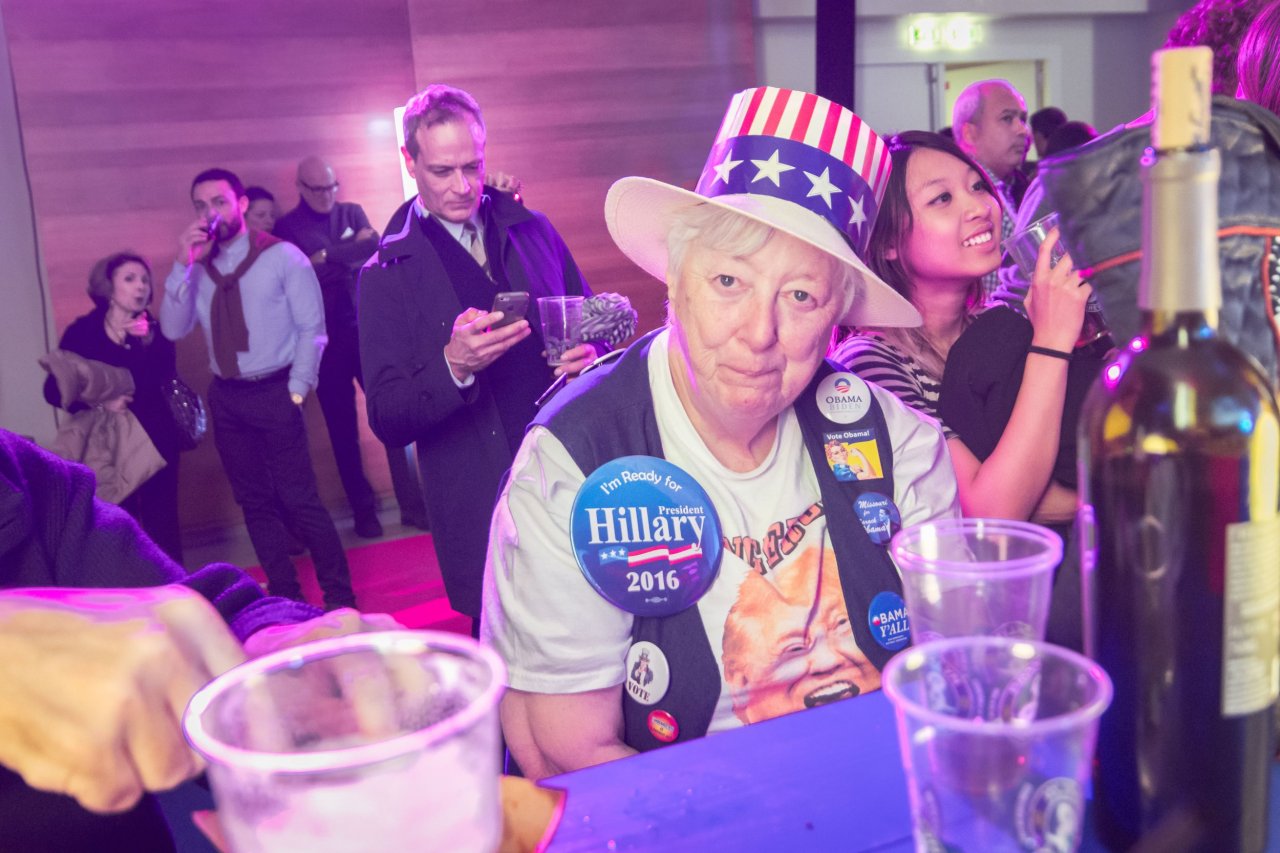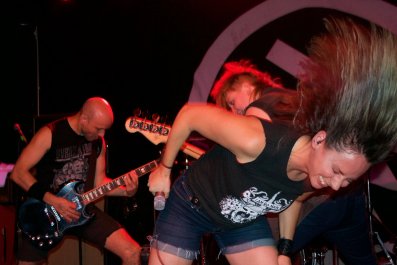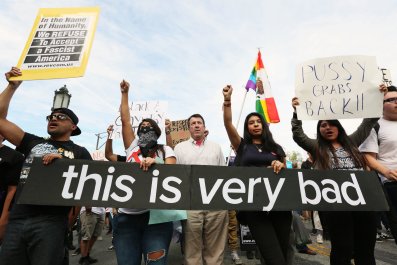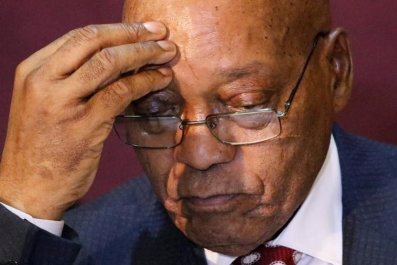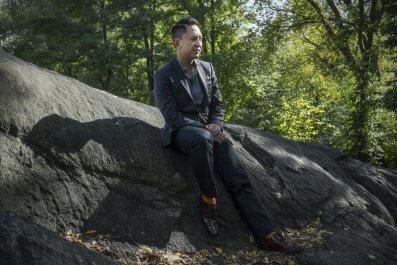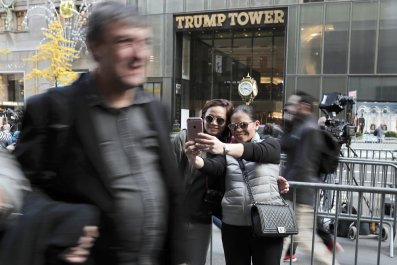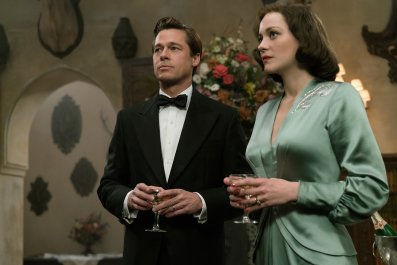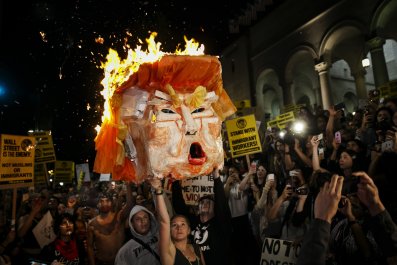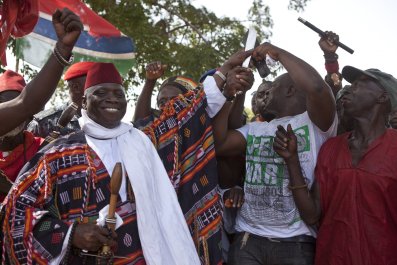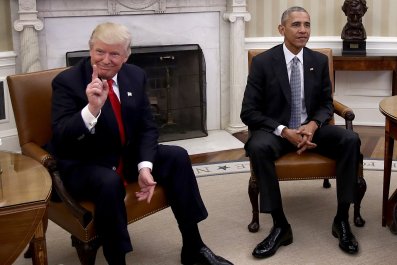If you voted in the recent presidential election, there's a pretty good chance you spent some time pondering the qualifications of Donald Trump and Hillary Clinton. There's almost no chance you were thinking about David Ferriero's résumé, but you should have been. As the chief archivist of the United States, Ferriero and his colleagues organize the vote of the 538 electors in the Electoral College who actually choose the president.
The Constitution requires all electors to meet in their state capitols to cast ballots. Ferriero collects and organizes them, makes sure the states have followed the rules, then presents the ballots to Congress, which is charged with getting them counted. This antiquated ritual will play out again on January 6; only then will the U.S. officially elect its 45th president.
Outside of a fifth-grade social studies class, most people don't study the Electoral College, but this year it's controversial because Trump lost the popular vote (by well over a million votes, and it could be 2 million when the counting's done). This has happened just five times in American history, but twice in the past 16 years, the other time being George W. Bush's Electoral College defeat of Al Gore in 2000. But given demographics, it could happen again, and soon.
Trump supporters bristle when they hear griping about the Electoral College, and they probably should. No one is doubting their man won by the rules of the game, but a lot of people are now questioning why Americans play this silly game every four years. Democratic Senator Barbara Boxer of California has introduced a bill to abolish the Electoral College, and anti–Electoral College op-ed writers have been ripping it for weeks now. Among their questions and laments: Why have a system that ensures most states are ignored during the presidential campaign while a few swing states are buried with attention from the candidates? Should a minority of voters get to decide who becomes president? And is there any way to fix this system short of a constitutional amendment?
Blame Hamilton
The Founding Fathers, worried about mob rule, envisioned the Electoral College as a kind of cooler-heads-prevail backstop. Alexander Hamilton saw the electors as wise men "most likely to possess the information and discernment" to choose a good president, and he didn't want the electors pledged to any candidate. But these days, the electors are almost always party hacks and former elected officials, merely a rubber stamp, not some independent body of wise souls solemnly weighing whether to ratify the people's choice. (In a bit of eerie prescience, Hamilton in "Federalist 68" seemed to anticipate the controversy over Russian hacking by saying the electors might be able to overturn a popular vote that had been unduly influenced by a foreign power.)
Related: Hillary Clinton won popular vote, but not the presidency
But that's not happening now or in the past. In recent decades, there have been only a few "faithless electors," as they call those who defied the voters who chose them. This year, one Clinton elector has declared he won't back her because of her lax record on Native American rights.
The biggest beef against the Electoral College is that it weights the election in favor of small, rural states. The number of electors is based on the total House and Senate members in each state's congressional delegation. The smallest-population states have three electoral votes, while California, the largest, has 55, far ahead of Texas, which has 35. Defenders of the Electoral College say that tilting it in favor of small states keeps the presidential race from being a frenzy to harvest votes in the most populated areas. Without it, candidates would mostly hustle in cities, overlooking huge swaths of the country. The founders, who were openly elitist, didn't want flat-out majoritarian rule, which is why the Senate is apportioned so that each state has two senators no matter its population, while the House reflects a one-person, one-vote standard. Wyoming, with just over 582,000 people, has the same number of senators as California, which has 39.5 million. (And Trump thought the election was rigged?)
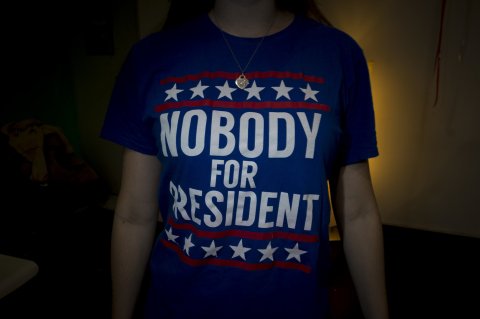
That raises another problem with the Electoral College: The founders never envisioned a behemoth state like California. In their day, the population difference between the largest and smallest state was 10 to one (Virginia versus Delaware). What's more, cities were minuscule. There was no clear rural-urban divide. In 1790, New York City, which has always been the nation's most populous city, had 33,000 residents. Today, it has 8.4 million (and almost 79 percent of its voters backed Clinton against the "local boy"). The founders didn't anticipate that kind of hyper-urbanization.
Another knock against the Electoral College is that instead of ensuring a nationwide race, it creates a nutty focus on swing states such as Nevada or Iowa. It's bad enough that the system tilts in favor of small states, but it tilts even more insanely toward small swing states. Folks in New Hampshire were the most powerful voters in 2016, according to analyses, because their state was the smallest of those in play. No wonder Clinton and Trump were constantly there, ignoring much bigger but out-of-play states like Washington or Kansas.
If you don't like this system, get ready to like it a lot less in the near future. The huge population growth of California since World War II (when it was only the fifth largest state, with under 7 million people in 1940) and its strong Democratic leanings mean it's likely there will be many more elections in which the winner of the popular vote gets trumped by the Electoral College. (Democrats have won the popular vote in six of the past seven elections.)
The super-blue hue of California means we're likely to see a Democratic win in the popular vote again and again if the race is close. Trump won seven of the 10 most populous states, but two of them were by 1 percent . His best of the big states was Texas, which he won by just over 9 percent. But Clinton won her three top 10 states by huge margins: California by 28.5 percent, New York by 21.2 percent and Illinois by 16.9 percent, which is a large part of the reason she won the popular vote nationally. As long as the large blue states remain so big and so lopsided in their preferences (especially California), Democrats are likely to keep winning the popular vote.
How Can We Help You, Utah?
Not that it's ever going to be put to a vote, but the overwhelming majority of Americans think the popular vote should pick the president. That's worrisome, because at some point there is bound to be a real crisis of legitimacy; the majority may not always be content to merely grumble when it is ruled by the minority.
Until that happens, the Electoral College ain't going away. Dismantling it via a constitutional amendment would require two-thirds of Congress and three-quarters of the states to sign on—which would mean that many of those who benefit from the current arrangement would have to help kill it. There's no reason small-population states like Rhode Island and Idaho would back an amendment that would give them less clout.
There are two interesting ideas that could make the system better. One is the National Popular Vote Interstate Compact, an agreement among states that they will give all of their electoral votes to the winner of the national popular vote. The upside of this is that if enough big states sign on, it won't matter nearly as much what the small states do. The downside is that it's not enforceable—the electors have pretty much free rein to vote as they choose, and the Constitution likely prevents such interstate compacts and treaties. So far, 10 blue states of all sizes, including California, have signed on, which makes sense since Democratic candidates are the ones getting short-sticked on this matter.
The more intriguing idea may be to expand what Maine and Nebraska have done with their electors. The Constitution sets up the Electoral College, but it leaves it to the states to decide how to apportion their electoral votes. All go with the winner-take-all system, but Maine and Nebraska apportion their electors by congressional districts. In most presidential elections, Maine and Nebraska's individual districts don't break off from the rest of the state. But in 2008, Nebraska's urban 2nd District, which includes Omaha, went for Barack Obama. This year, Maine's vast, rural 2nd District went for Trump.
The good thing about this scheme is that it drew the presidential candidates to areas that might otherwise have been ignored. Trump held multiple rallies in Bangor, in Maine's north, and Clinton worked Omaha, hoping to replicate Obama's win.
If more states apportioned electors by congressional districts, they'd get more attention. Right now, there's no incentive for candidates to go to safe blue states such as New Jersey or safe red ones like Tennessee. If the electors were apportioned by congressional district, that might change. Trump could have mined New York state's Republican districts—from the Canadian border to Staten Island—that regularly go red. Likewise, Clinton might have played harder in deep-red Texas, seeking votes in Austin, Dallas and Houston. Just having a few states adopt this system would make for a more interesting race. Instead of the candidates fawning over a few winner-take-all swing states, they would have to woo more of the country.
Hamilton wisely favored choosing electors by district, but the majority party in the states couldn't resist posting statewide slates of electors—all the better to crush the chances of any minority party electors. Once one state did it, it became a kind of arms race, and today we're stuck with 48 winner-take-all elections.
Once again, Hamilton was smarter than the rest of us.
Read more from Newsweek.com:
- International observers find "serious shortcomings" in U.S. electoral system
- Behind states' push to reform the Electoral College system
- How Donald Trump surfed public anger to the presidency



